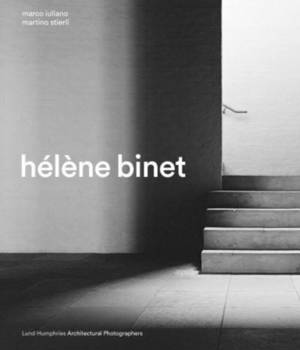
- Afhalen na 1 uur in een winkel met voorraad
- Gratis thuislevering in België vanaf € 30
- Ruim aanbod met 7 miljoen producten
- Afhalen na 1 uur in een winkel met voorraad
- Gratis thuislevering in België vanaf € 30
- Ruim aanbod met 7 miljoen producten
Omschrijving
Over a period of forty years, Hélène Binet has photographed both contemporary and historical architecture - this is the complete monograph of her work, with two extensive critical essays. Marco Iuliano details Hélène Binet's background, from her childhood in the Italian fishing village of Sperlonga and in Rome, through her early 'discovery' of architectural photographer Lucien Hervé, to other significant influences, like the collaborations with Daniel Libeskind, John Hejduk and the connections at the Architectural Association (AA) in London where she met Zaha Hadid. The essay highlights in detail Binet's approach to photography, her process and archive.
Martino Stierli sets Binet's work within the conceptual framework of architectural photography, discussing whether an architectural photograph is an inventory of a building or space, a translation into a two-dimensional image or, rather, an image in its own right; an artifact that loosely relates to the original object or phenomenon. Within this context, Stierli argues that Binet's oeuvre seems to oscillate between two obsessions: a desire to translate spatial phenomena into the two-dimensional space of the image and a quest to articulate the modulation of light on a surface. The two essays are followed by a catalogue of Binet's work, which is framed within a series of her recurring themes emerged through dialogues between the authors and the photographer.
Specificaties
Betrokkenen
- Auteur(s):
- Uitgeverij:
Inhoud
- Aantal bladzijden:
- 160
- Taal:
- Engels
- Reeks:
Eigenschappen
- Productcode (EAN):
- 9781848225947
- Verschijningsdatum:
- 18/07/2024
- Uitvoering:
- Hardcover
- Formaat:
- Genaaid
- Afmetingen:
- 241 mm x 279 mm
- Gewicht:
- 1183 g

Alleen bij Standaard Boekhandel
Beoordelingen
We publiceren alleen reviews die voldoen aan de voorwaarden voor reviews. Bekijk onze voorwaarden voor reviews.











